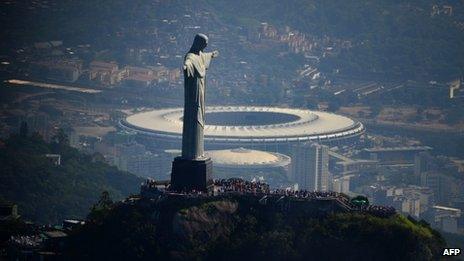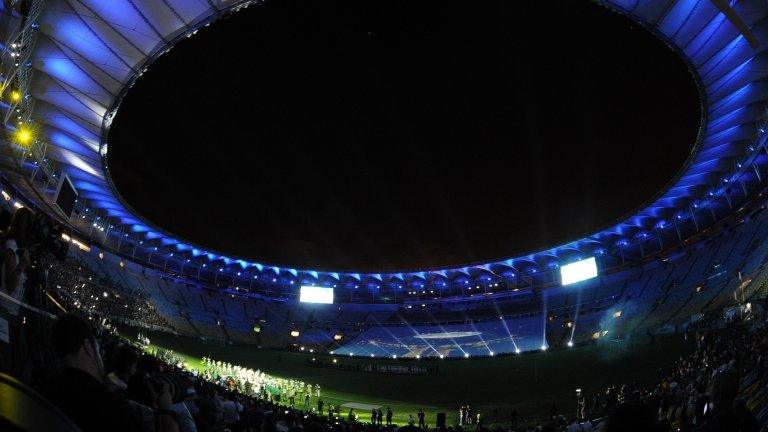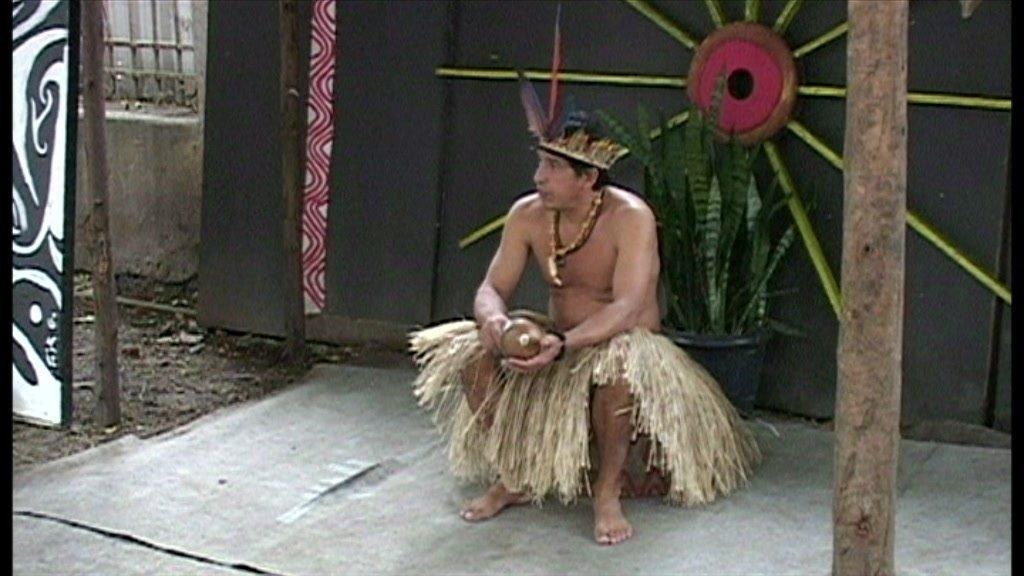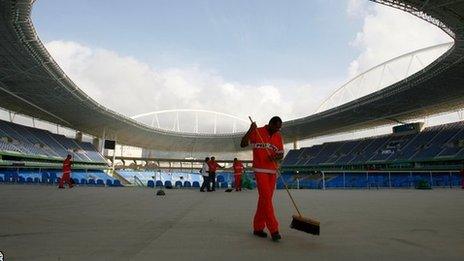Brazil judge suspends Maracana stadium 'privatisation'
- Published

The stadium has become the home ground of Rio's biggest football clubs
A judge in Rio de Janeiro has suspended a controversial decision to hand over control of Brazil's biggest and most famous football stadium, the Maracana, to a consortium of private companies.
Judge Gisela Faria ruled there had been irregularities in the bidding process.
One of the companies behind the winning bid had been unfairly advantaged in the process, she said.
The stadium will host the final of next year's football World Cup and the opening ceremony of the 2016 Olympics.
On Thursday, the Rio de Janeiro state authorities announced a group that includes one of the country's richest men, Eike Batista, had won the bid to manage the stadium for the next 35 years.
One of Mr Batista's companies, IMX, produced a viability study in the earlier stages of the process.
"Even before the bids were put forward, the principle of fairness among the competitors had been disregarded," Judge Faria said in her ruling.
The winning bid also included Brazilian building giant Odebrecht and AEG, the Los Angeles-based entertainment firm, which manages several venues across the US and Europe.
The defeated bid was led by rival Brazilian building company OAS, the French company Lagardere and Stadion Amsterdam.
Public money
The legal action to stop the process was brought by Rio's Prosecutor's Office, which also challenged what it said was the unnecessary demolition of the athletics stadium and an Olympic swimming pool next to the Maracana.
State governor Sergio Cabral had said on Thursday the bidding process "has been approved by the legal authorities" and was "perfectly legal".
But Judge Faria said the Rio authorities must now wait for a final ruling on the legality of the bidding process before allowing any company to take over the stadium.
The Maracana was built to host the first post-war football World Cup in 1950, won by Uruguay.
The whole bidding process has been controversial. Campaigners have protested what they saw as the privatisation of the stadium after three years of costly renovation work.
The Brazilian government has spent more than $500m (£320m) of public money to revamp the stadium and prepare it for the 2014 World Cup.
- Published28 April 2013

- Published28 April 2013
- Published21 May 2012

- Published27 March 2013
